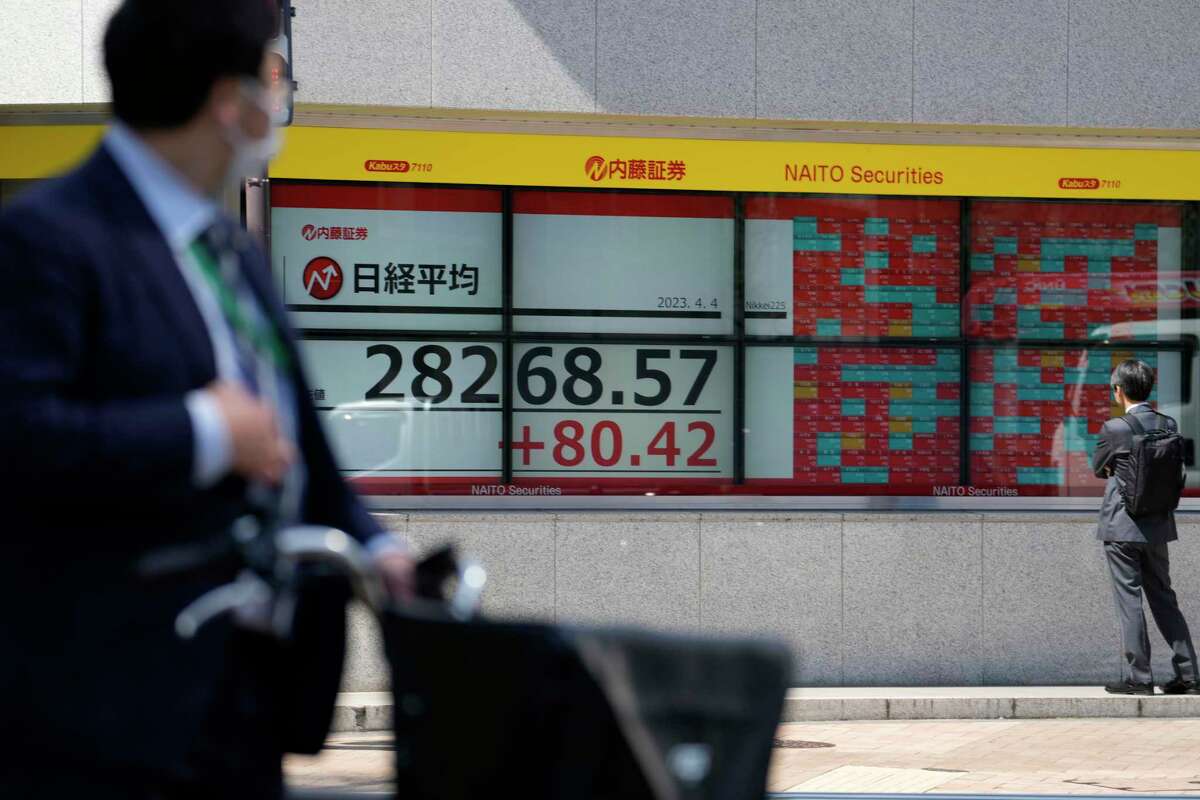Japan’s benchmark Nikkei stock index ended sharply lower Wednesday as concerns over a U.S. economic slowdown coupled with a firm yen dented investor sentiment.
The 225-issue Nikkei Stock Average dropped 474.16 points, or 1.68 percent, from Tuesday to end the day at 27,813.26.
The broader Topix index, meanwhile, lost 38.92 points, or 1.92 percent, to finish at 1,983.84.
Job openings in the United States falling to their lowest level in almost two years according to official data, raising the prospect of the U.S. Federal Reserve pausing its interest rates, saw the dollar drop to the lower 131 yen mark at one point on Wednesday, dealers here said.
Aside from the tight labor market in the United States, following the collapse of prominent banks in the United States and Europe, continued fears over the stability of the global financial network have led to the prices of gold in Japan hitting a new record on Wednesday.
Investors have been switching out of riskier assets like stocks and into perceived safe havens like gold amid concerns over a U.S. economic slowdown.
On the Osaka Exchange late on Tuesday, benchmark gold futures temporarily hit 8,554 yen (65.98 U.S. dollars) per gram, and on Wednesday, hit an all-time high of 9,443 yen (71.73 dollars) per gram in Tokyo, precious metal firm Tanaka Kikinzoku Kogyo K.K said.
Local brokers said a wide range of issues came under pressure as concerns continue to rise that the U.S. economy may be tipped into a recession, with fears punctuated by slowing demand.
“Investor sentiment was hurt by the disappointing job openings data, which followed weaker-than-expected U.S. manufacturing data earlier this week,” Masahiro Ichikawa, chief market strategist at Sumitomo Mitsui DS Asset Management Co., was quoted as saying.
“While fears of a U.S. recession existed, concerns grew further over prospects for the economy due to anxiety over the financial system following bank failures last month and recent economic data,” Ichikawa said.
Along with the yen’s strength weighing on exporters, analysts said that falling U.S. stocks and fears over its economy had led to investors selling economically-sensitive issues such as energy and steel.
“Rising concern over the U.S. economy and the decline in U.S. stocks are having a big impact. Economically-sensitive sectors such as energy and steel were being particularly hard hit,” Maki Sawada, a strategist at Nomura Securities, was quoted as saying.
“Given the Nikkei’s rise in recent sessions, some profit-taking is natural,” Sawada said.
Among exporters retreating on the yen’s advance, Nissan Motor reversed 1.8 percent, while Toyota Motor skidded 2.4 percent.
Steelmakers ending lower included Kobe Steel dropping 3.5 percent, JFE Holdings falling 3.6 percent, while Nippon Steel lost 2.9 percent.
Among Nikkei heavyweights, Uniqlo clothing chain store operator Fast Retailing dragged the most, ending the day down 1.9 percent.
By the close of play, iron and steel, oil and coal product and machinery shares comprised those that lost the most.
The turnover on the third trading day of the week came to 2,816.11 billion yen (21.38 billion dollars).










